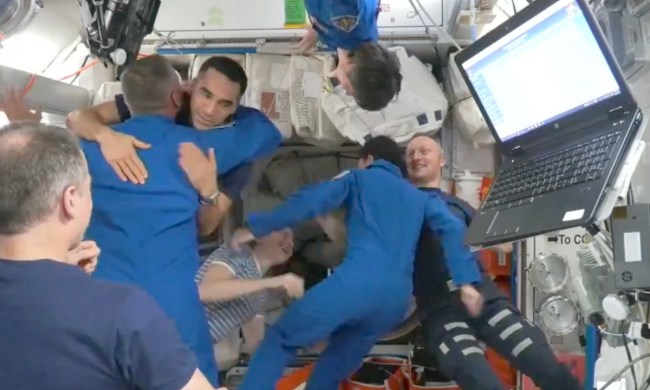
The special delivery will be used for a space-based science experiment aimed at helping researchers better understand the impact of near-zero gravity on gene expression and mutation patterns, Forbes reported. The pathogen that (fingers-crossed) won’t wreak havoc on the ISS or inspire a hellish horror movie about the same is methicillin-resistant staphylococcus aureus, better known by its shorter “superbug” name: MRSA.
For those not in the know, MRSA is resistant to many widely used antibiotics and therefore can be tricky to treat effectively, making it a serious threat to public health. That’s why scientists are desperate to find a way to deal with it.
Lead researcher Dr. Anita Goel believes that the near-zero gravity environment aboard the space station could cause the mutation rate of MRSA to accelerate.
While that may sound like more fodder for a horror flick that they probably won’t make, the acceleration would give scientists the opportunity to stay ahead of the unfolding MRSA situation on Earth, as they’ll be able to glimpse mutation patterns that are yet to occur back on the ground.
“Our work in microgravity on the ISS is both very practical and fundamental,” Goel told Forbes. “We are pushing the envelope of personalized, precision medicine, enabling better prediction of drug resistance and hence smarter drugs.”
It’s an exciting time for Goel and her team, with the space station experiments potentially leading to a significant breakthrough in the study and handling of MRSA. With more than 80,000 invasive MRSA infections and some 11,000 related deaths occurring in the United States every year, such a breakthrough can’t come soon enough.


